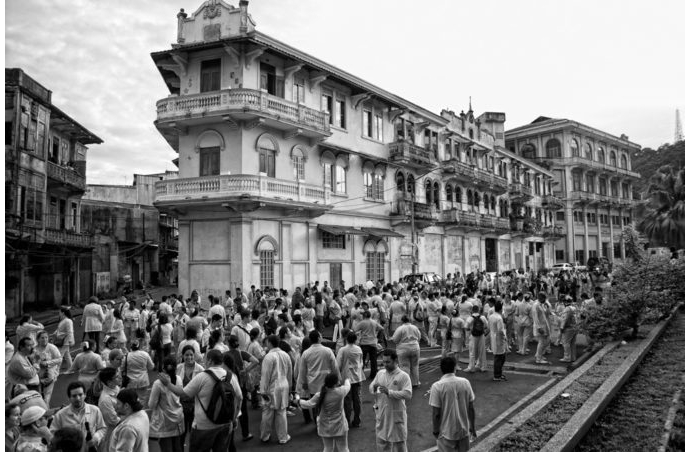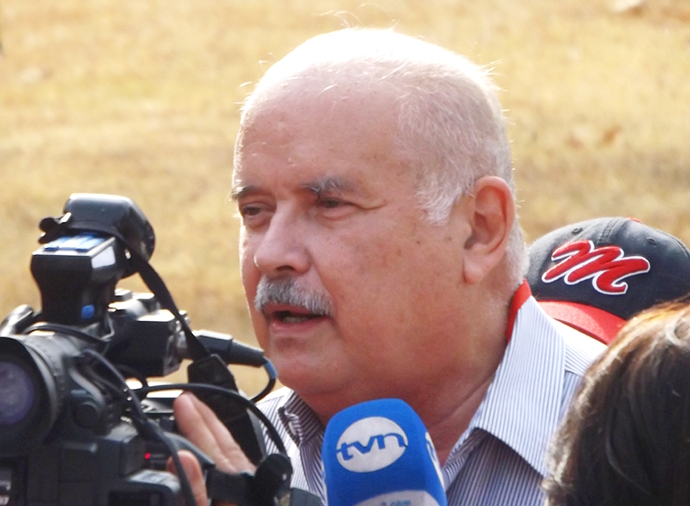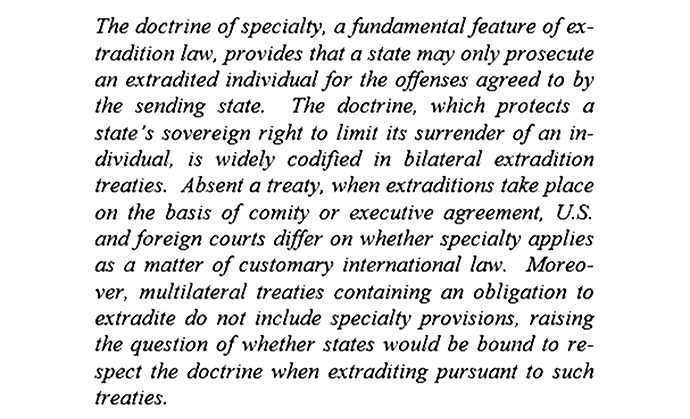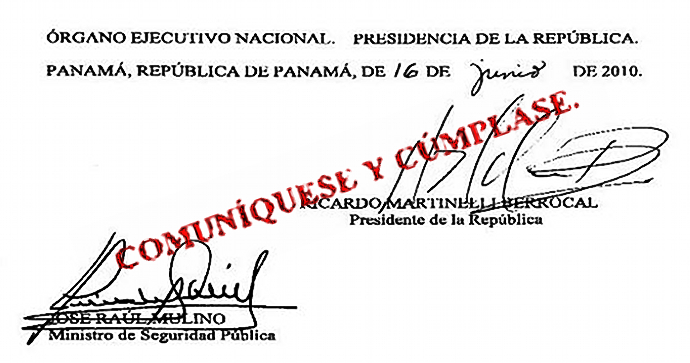On Friday, August 2 President Cortizo, Panama Canal Administrator Quijano and invited guests formally opened the new Atlantic Side bridge over the Panama Canal. Part of the mostly rural legislative circuit that Cortizo used to serve is now better connected to the rest of the world than it ever was — no ferries, no swing bridges at the locks, nobody dying while waiting to get across the canal to a hospital. Some 40,000 people live in more than 400 little towns and clusters of houses on Colon’s Costa Abajo. The bridge, a project that this new administration inherited, was built by a Chinese consortium. The country is on short rations for the moment, so we shall see how much Chinese engineering and construction we can afford over the next five years. Surely we shall see more. Photo by the Presidencia.
Nito confronts a budget and debt crisis
by Eric Jackson
Juan Carlos Varela left the presidency a little more than a month ago with a public debt of some $26.612 billion. That was about $8 billion more than what Ricardo Martinelli had left to him.
By comparison, according to the International Monetary Fund Panama’s’ Gross Domestic Product this year is expected to be a bit more than $72.2 billion. Latin America has worse debt crises, but the situation is serious.
However, debt numbers from one administration to the next are always debatable given the games that governments play. A favorite is the turnkey project, wherein one administration pays nothing but when the next government is in office and the job is complete, the whole bill becomes immediately payable. Another time honored tradition is to delay payments to suppliers or other contractors so that the next administration gets to pay — which might be an old standard but when it comes to medicines and hospital supplies it can lead to shortages and deaths.
In the last months of his administration Varela was looking to float $1.2 billion in bonds to pay down government debts. However, he was facing such stiff opposition in the legislature and such hard questions about Odebrecht, Blue Apple and other things that he was unable to close the deal.
Nito Cortizo, however, quickly upped Panama’s sovereign debt by another $2 billion, selling that much in bonds in a single day. He had promised international lenders a standard neoliberal economic package of austerity at home and incentives for foreign investment. But offsetting that, he has also said that he would renegotiate old deals that are unfavorable to Panama, the ones for the ports of Balboa and Cristobal and for the copper mine in western Colon province. The World Bank and International Monetary Fund are not calling for his scalp about those things. His big international economic problems are the fallout from US and Chinese trade wars, plus erratic and sometimes belligerent winds blowing from the White House.
So, what to do with a $2 billion loan, and what sort of austerity measures? First priority is to pay farmers for produce bought by the Agricultural Marketing Institute. Then come back wages for educators and health care workers. Those items will eat up most of the bond issue.
The austerity? Most of all in education and public health. The total Cortizo public budget cut for 2019 is just under $1.484 billion. From the health care sectors divided between the Social Security Fund and the Ministry of Health, there will be a $407.6 million cut. From primary and secondary education there will be an $85 million cut, nearly $30 million will come out of the University of Panama and the Tecnologico, and there will be unspecified cuts in scholarships and subsidies from the Institute for the Formation of Human Resources. (IFARHU).
The legislators are insisting that they are under no circumstances to be investigated for their peculations over the previous years. Meanwhile Rubiela Pitano, Cortizo’s original nominee to head that Secretariat for People with Disabilities (SENADIS), and former PRD legislator Rubén de León are being charged with stealing from the government via the National Assembly’s payroll. Is Cortizo going to just cut the legislature checks for their slush funds as before? Doubtful. And will he continue to allow legislators to run and loot the sports federations, on the dime of the PANDEPORTES, a government agency? Austerity may mean a confrontation between the president and a legislature dominated by his own party, but one convenient thing for presidents here is that they have a line item veto to wield in the event of budget showdowns.
On the new spending side, Cortizo vows to extend the Cinta Costera out to Amador to connect the coming new convention center. He also plans to raise spending on Panama’s 2000 poorest corregimientos, almost all of them rural. Those include every corregimiento in the indigenous comarcas.
One pending problem is a huge inventory of unsold or unoccupied real estate units, built on premises of sale to upscale foreigners or while not so stated for apparent money laundering purposes. But Panama is under international pressure about money laundering and the PRD deputies in the legislature are snarling at and spitting venom at foreigners in general. That real estate is not going to sell to the originally intended buyers anytime soon and there are not enough Panamanians with the money to buy all the condos.
Other big problems are changes in the world and regional economies. Arctic routes and new railroads will be adding new competition for the Panama Canal. The mixes of what gets shipped to and from where versus production near places of consumption will continue to change. Political instability could devastate world trade. None of those things are easy to predict.
But even though the Presidencia’s website talks about a “black hole” in the national economy, Cortizo says he’s optimistic. He’s predicting an administration that starts with some belt tightening in the face of deficits, but ends with budget surpluses.
These links are interactive — click on the boxes

































